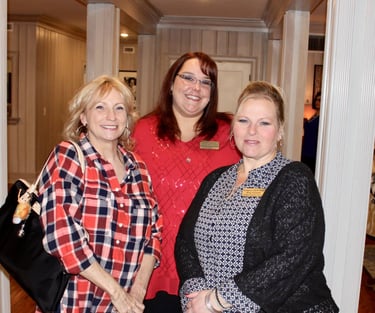Depression can affect as many as 15 of every 100 seniors yearly in the United States. Unfortunately, depression among residents in assisted living centers can go unnoticed or under-reported. Though today’s senior living has improved dramatically in the aspect of quality of life and resident happiness as compared to just a couple of decades ago, there is still work we all can do to help our friends and relatives spend their golden years in the happiness they deserve.
Make Regular Visits
 Many seniors who reside in assisted living centers who do not get regular visits may feel forgotten, abandoned or unloved. These feelings are major contributing factors to depression. One of the best ways to guarantee resident happiness is to ensure that your loved one has regular visitors. In fact, if you can get together to make sure there is a visitor every other day or so, then the benefit will be even greater. We all get busy and life does happen, but your loved ones miss you now maybe more than they did before coming to the center.
Many seniors who reside in assisted living centers who do not get regular visits may feel forgotten, abandoned or unloved. These feelings are major contributing factors to depression. One of the best ways to guarantee resident happiness is to ensure that your loved one has regular visitors. In fact, if you can get together to make sure there is a visitor every other day or so, then the benefit will be even greater. We all get busy and life does happen, but your loved ones miss you now maybe more than they did before coming to the center.
Even if you do not have a friend or family member living in a center and you have free time, call the administrative offices to see if they have any need for volunteers. Sometimes just a small kindness from a stranger is worth its weight in gold.
Pay Attention and Learn How to Listen
While you are visiting your loved one, be alert to sudden changes in attitude or personality. While we all have bad days, a person who usually seems to be happy or content that suddenly becomes withdrawn or sullen is a concern.
If would be to both yours and your loved one’s benefit for you to learn the symptoms of depression. Depression can also manifest itself with many other side effects as well, and some of them are physical. Be alert for changes in appetite, sleeping habits and increases in aggression or anger. Depression can also cause your loved one to experience increased pain if they have physical conditions that can cause it and even incontinence when this condition did not previously exist.
Know Who to Talk To
 If you notice any type of behavioral change, speak to the nurses or doctors in the center instead of confronting your loved one. Speaking directly to your friend or family member could cause your loved one to become defensive. Alternatively, they may begin to hide their feelings to keep from making you unhappy.
If you notice any type of behavioral change, speak to the nurses or doctors in the center instead of confronting your loved one. Speaking directly to your friend or family member could cause your loved one to become defensive. Alternatively, they may begin to hide their feelings to keep from making you unhappy.
If you don't get the results you feel that you need, do not feel as if you are overstepping your bounds in climbing the chain of command to help your loved one. Resident happiness is still an important component in life at assisted living centers.
Be Understanding
Your loved one may be living in an assisted care center and you may be in charge of their well-being. Ultimately, however, they likely still want to be as independent as possible. Your loved one might want to have a say in their care as well as their social activities.
Many seniors who are single will want to have a romantic relationship, often with another resident. It is important to understand that seniors have wants and needs just as everyone else does.
Looking for more advice for folks with loved ones residing in assisted living? Contact us today to chat!

